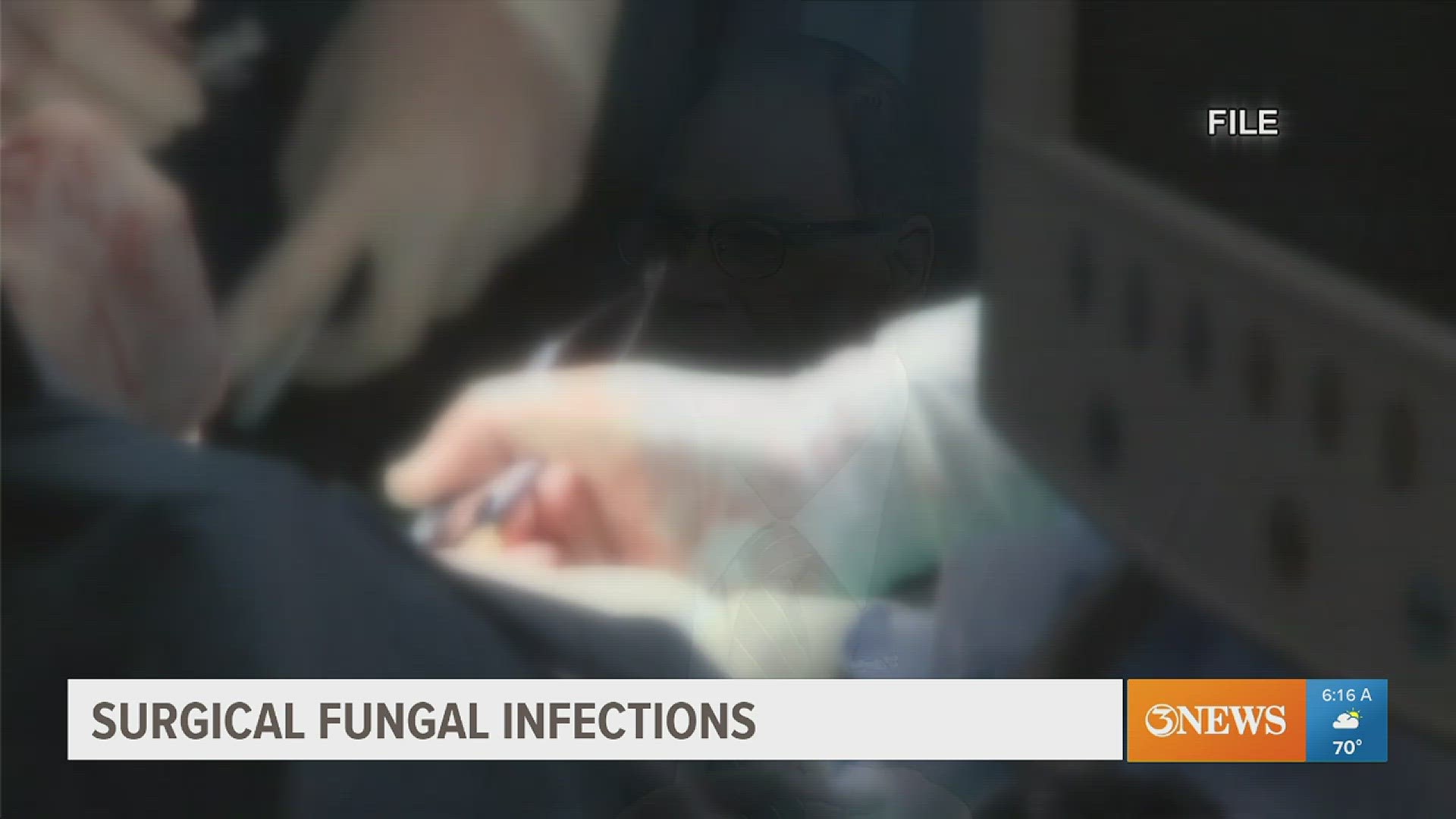BROWNSVILLE, Texas — State and federal health officials are warning U.S. residents to cancel planned surgeries in a Mexico border city after five people from Texas who got procedures there came back and developed suspected cases of fungal meningitis. One of them died, officials said.
The five people who became ill traveled to Matamoros, across the border from Brownsville, for surgical procedures that included the use of an epidural, an anesthetic injected near the spinal column, the Texas Department of State Health Services said Tuesday. Four remain hospitalized, and one of them later died.
Those who became ill range in age from 30 to 50 years old, the department said.
The federal Centers for Disease Control and Prevention issued a travel advisory Tuesday for U.S. residents seeking medical care in Matamoros.
Meningitis is the swelling of the protective covering of the brain and spinal cord and should be treated urgently. Symptoms include fever, headache, a stiff neck, nausea, vomiting, confusion and sensitivity to light. Cases of meningitis can be caused by viruses, bacteria, trauma or fungi.
Fungal meningitis, like in the Texas cases, is not transmitted person to person, health officials say. It could be accidentally introduced during a medical or surgical procedure.
U.S. and Mexican authorities are attempting to find the source of the infection, whether the cases are linked and if there are other cases, the Texas health department said.
The CDC urged anyone who had an epidural injection of anesthetic in that region after Jan. 1, 2023, to watch for symptoms of meningitis symptoms and consider consulting a doctor.
Patients in the Texas cases began showing symptoms three days to six weeks after surgery in Matamoros.
People leaving the U.S. for prescription drugs, dental procedures, surgeries and other medical treatment — also known as medical tourism — is common, experts say. Besides Mexico, other common destinations include Canada, India and Thailand.

